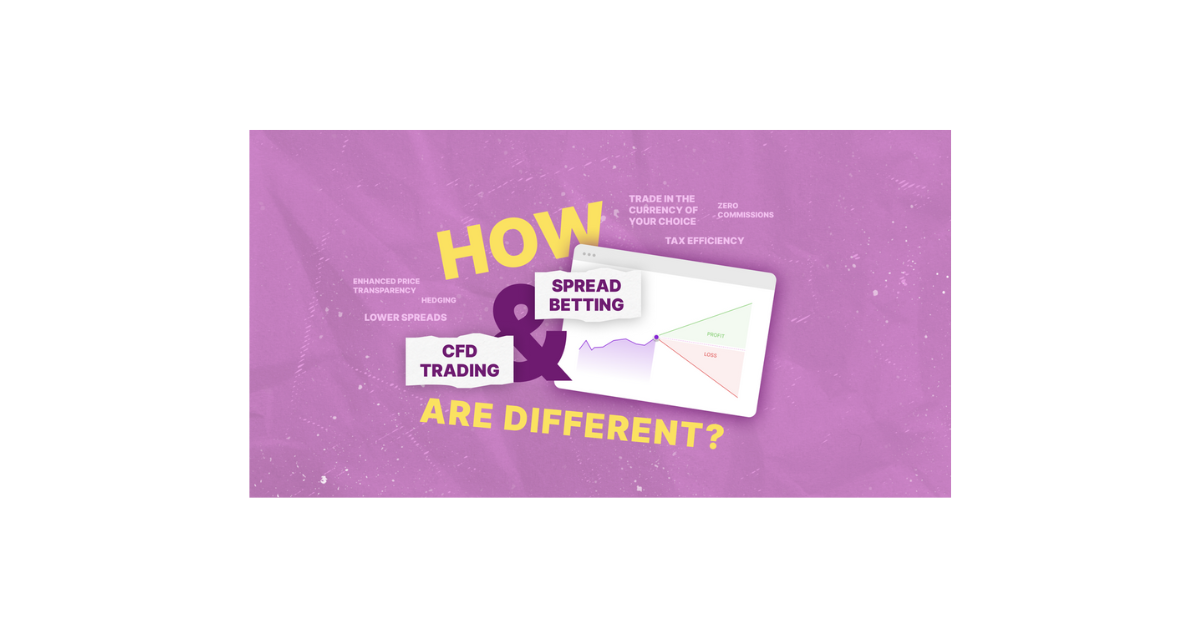What is CFD Spread Betting?
CFD spread betting is a popular form of trading that allows investors to speculate on the price movements of various financial markets, such as indices, commodities, stocks, and currencies. In this type of trading, investors do not own the underlying asset but instead enter into a contract with a broker to profit from the difference in the price of the asset between the time the contract is initiated and when it is closed.
One of the key features of CFD spread betting is the ability to trade on margin, which means that investors can take larger positions in the market with a smaller amount of capital. This leverage effect can amplify both profits and losses, making CFD spread betting a high-risk, high-reward form of trading. Additionally, CFD spread betting offers flexibility in trading, as investors can go long (buy) or short (sell) on assets, allowing them to potentially profit in both rising and falling markets.
Understanding CFDs and Spread Betting
Contracts for Difference (CFDs) and spread betting are both popular forms of trading in financial markets. CFD trading involves speculating on the price movements of various financial instruments without actually owning the underlying asset. Traders can go long (buy) or short (sell) CFDs based on their predictions of whether the asset’s price will rise or fall.
Spread betting, on the other hand, is a type of derivative trading where traders bet on whether the price of an asset will rise or fall without actually owning the asset itself. The profit or loss in spread betting is determined by the accuracy of the prediction made by the trader. Both CFDs and spread betting offer traders the opportunity to profit from price movements in various markets, including stocks, commodities, currencies, and indices.
Key Differences Between CFDs and Spread Betting
CFDs and spread betting are popular trading methods with distinct differences. One key disparity lies in the way profits are taxed. With CFDs, the gains are subject to capital gains tax, while tax liabilities do not apply to spread betting winnings. This variance can significantly impact the overall returns for traders, making it crucial to consider the tax implications when choosing between the two options. Additionally, the mechanics of these instruments differ in terms of how they are traded. CFDs involve an agreement between the trader and the broker to exchange the difference in price of an asset, while spread betting allows traders to speculate on the price movements of an asset without actually owning it. This subtle contrast can influence the trading strategies and risk management approaches employed by investors in each method.
Advantages of CFD Spread Betting
CFD spread betting offers traders the potential for high leverage, allowing them to gain exposure to a more significant position with a relatively small amount of capital. This can amplify profits if the market moves in the trader’s favor. Additionally, CFD spread betting provides the benefit of flexibility, as traders can go long or short on an asset, enabling them to profit from both rising and falling markets.
Another advantage of CFD spread betting is the ability to access a wide range of markets through a single account. Traders can trade various asset classes such as stocks, commodities, currencies, and indices without the need to open multiple accounts. This convenience not only saves time but also allows for the diversification of trading strategies across different markets, providing opportunities for profit in various market conditions.
Risks Associated with CFD Spread Betting
One of the primary risks associated with CFD spread betting is the potential for significant financial losses. Due to the leveraged nature of CFDs, traders can amplify their gains, but they also bear the risk of magnifying their losses. This means that even a small change in the market can lead to substantial financial implications for the trader.
Another risk to consider with CFD spread betting is the possibility of market volatility. The financial markets are constantly fluctuating, and prices can shift rapidly in response to various factors such as economic news, political events, or even natural disasters. Traders engaging in CFD spread betting must be prepared for the inherent unpredictability of the markets and the potential for sudden and sharp price movements that can result in financial losses.















